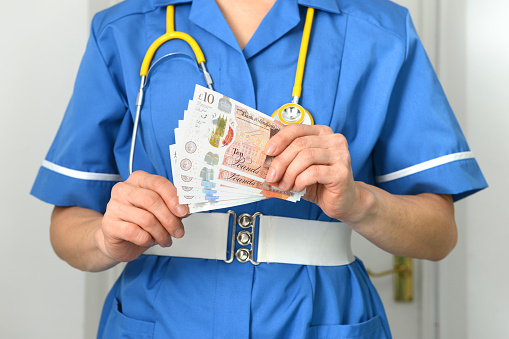
WOMEN working in the UK medical field earn 5.5 per cent less on average than their male counterparts, according to research by The King’s Fund, an independent think tank.
The study, which analysed data from the Office for National Statistics, revealed that full-time female doctors make £30.93 per hour, while male doctors earn £32.74 per hour.
Although there is still a lingering pay gap, the King’s Fund noted a significant reduction over the past five years, dropping from 20.9 per cent to 5.5 per cent across all roles.
In certain female-dominated positions within the health and care sector, women now earn slightly more than men, with care workers making £0.03 more per hour and nurses earning £0.16 more.
However, the gender pay gap is more pronounced in general practice, where male doctors earn 50 per cent more than female GPs.
On average, male GPs took home £146,000 last year, while their female counterparts earned £97,500.
The King’s Fund attributes this gap to more men running their own practices and benefiting from the associated income.
The research identified a key factor driving the healthcare pay gap: a disproportionate number of male workers in higher-paid roles.
Despite comprising only 31.3 per cent of the overall workforce, just over 40 per cent of the highest earners in healthcare were male.
In the social care sector, 31 per cent of senior management roles were held by men, despite men making up only 19 per cent of the overall workforce.
Danielle Jefferies, an analyst in the policy team at the King’s Fund, said there were lots of actions the government could take to close the pay gap, including offering more flexible working options, and “changing the narrative around the importance of NHS managers”, to encourage more female staff to apply for senior roles.
“Improving the workplace culture by helping people feel valued and a sense of belonging would reduce turnover rates in female workers,” she added.
“Social care is also an example of a female-dominated profession that is undervalued, so improving pay in social care would help close the overall UK gender pay gap.”
Jefferies urged NHS employers to continue measuring and discussing the gender pay gap.